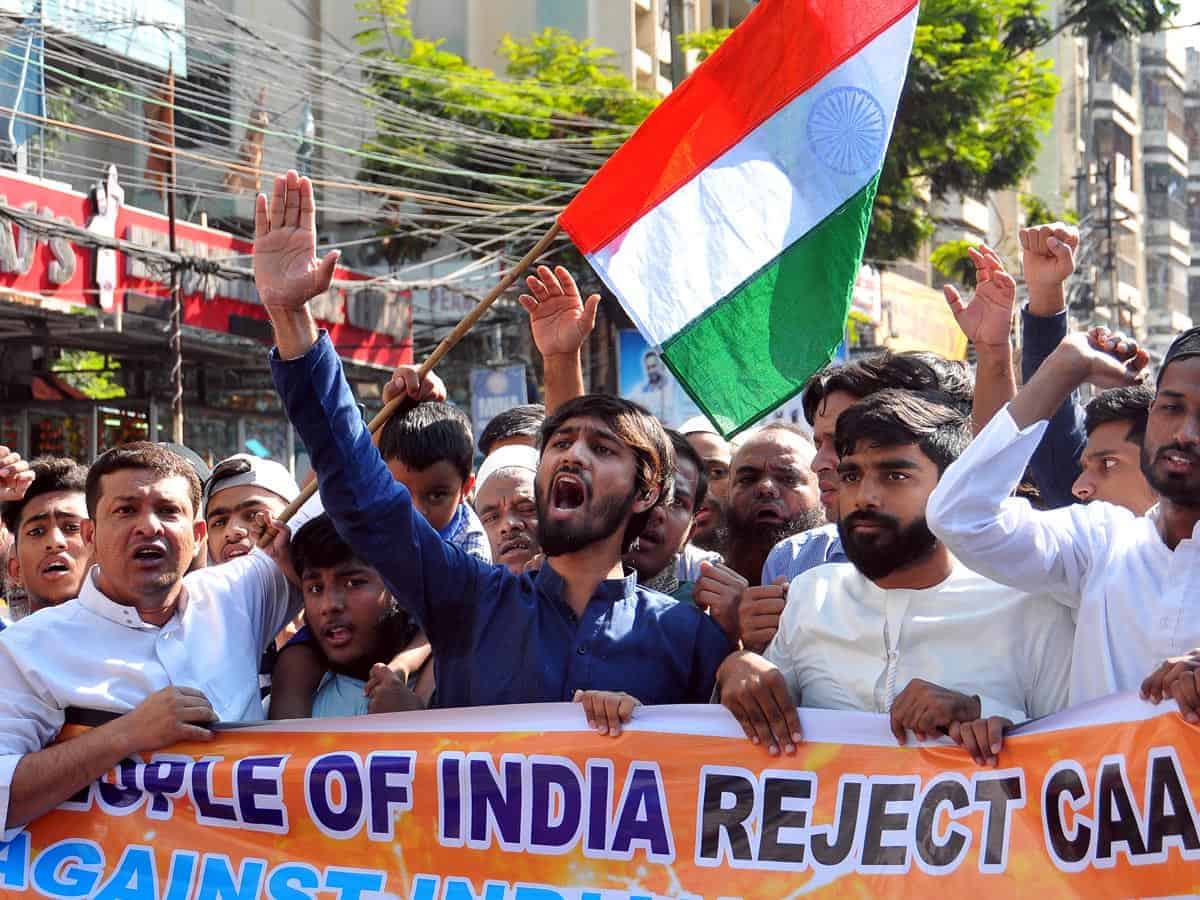In the past month, the citizens of India have risen in opposition against the recently introduced Citizenship (Amendment Act) (CAA), National Population Register (NPR) and the National Register of Citizens (NRC). The country is witnessing a spate of active citizen engagement via protests, demonstrations and activism. In light of the current clamour of confusion around the security and rights of minorities, the Centre for Development Policy and Practice (CDPP) organised a talk on ‘The State of the Nation’ at Lamakaan.
An esteemed panel of experts including Dr. Abusaleh Shariff, NC Saxena and Dr. Amitabh Kundu addressed the audience. The event was chaired by Dr. Amir Ullah Khan, professor at Marri Channa Reddy Human Resources and Development Institute (MCRHRDI), Government of Telangana. Shariff is a former advisor to PM Manmohan Singh and a member of the Sachar commission, also the Chief Scholar at the US-India Public Policy Institute. He stressed that the NRC and CAA will deepen the institutional bias against the Muslim community. During his segment , he touched upon with the budgetary burdens of the NPR exercise.
NC Saxena, a former bureaucrat and member of National Advisory Council, drew attention to the poverty and livelihood depravations surrounding the Muslim community. In his speech he highlighted that, “Muslims must see themselves as independent variables” and their development shouldn’t be
held ransom to other factors or communities. Both Hindus and Muslims must find a common way of protesting and strategising against such developments in the country.
Dr. Amitabh Kundu, chairperson of the post Sachar Commission, provided insights on the link between NPR and Census 2021. His lecture also addressed the operational constraints of the NPR.
At the end of the discussion, a few action items emerged as prime in empowering citizens.
The panel recommended the introduction of English medium education and scholarships in Madarsas to bring them on par with missionary schools. They also suggested allocating a certain percentage of seats to students from other communities will help mainstream minority education in the country. The group of experts recommended the general public to demand a Statement of Purpose regarding the data requested during the NPR exercise. Moreover, they implored the citizens to ensure the availability of the data in the public domain for all future references.
The group arrived at a consensus that the NPR should not be imposed but if the exercise commences, citizens must cooperate. It is also absolutely essential that democratic protests, speeches, seminars, policy papers, public meetings and debates sustain the momentum of the ongoing agitation against the CAA, NRC and the NPR. Lastly, the experts suggested a campaign to gather signatures from citizens of all faiths against CAA and NRC.
The talk had a sizeable turnout with audiences ranging from NGO workers, leaders of Civil Society Organizations, activists, students, academicians, businessmen and concerned citizens. The lecture was followed by an interactive Q and A session.
The CDPP is an independent organisation working to influence the public with the key focus on development of minorities. The group’s mandate includes undertaking research, consulting, training and outreach.

